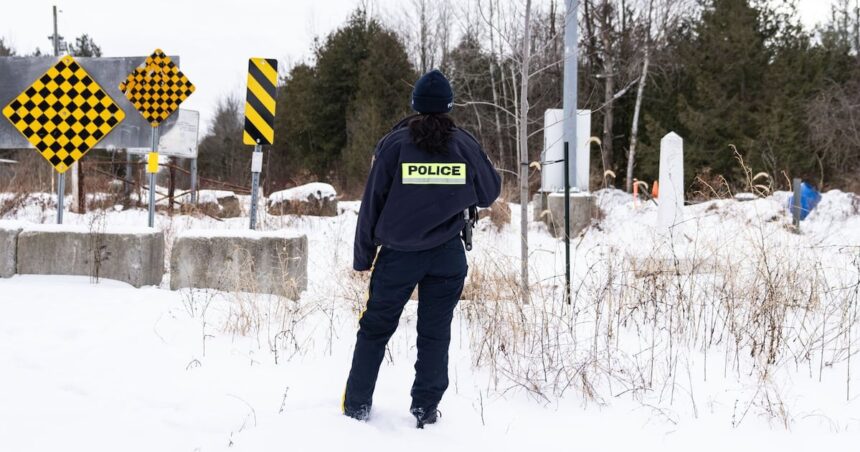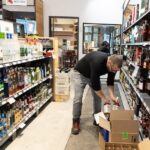As I stroll along Boulevard Saint-Laurent on this crisp autumn morning, the vibrant energy of Montreal seems unchanged. Yet beneath our city’s multicultural surface, significant shifts are occurring at our borders that deserve our attention.
The Saint-Bernard-de-Lacolle crossing, just an hour’s drive south of our bustling metropolis, has seen asylum claims double in recent months, according to data released yesterday by Immigration, Refugees and Citizenship Canada.
“We’re witnessing unprecedented numbers,” explains Marie Tremblay, spokesperson for the Quebec Border Services Agency. “Compared to last year’s figures, asylum seekers arriving at Lacolle have increased by 112%.”
This surge presents complex challenges for our province. At Café Olimpico, where I often gather insights from locals, opinions are as varied as our city’s architecture. Some express concerns about resource allocation, while others emphasize our humanitarian responsibilities.
Professor Jean Lecavalier from Université de Montréal’s Immigration Studies department provides context: “Quebec has historically maintained a delicate balance between welcoming newcomers and preserving its cultural identity. This current influx tests that balance.”
The reasons behind this increase are multifaceted. Global conflicts, economic disparities, and changing immigration policies in the United States have created what immigration lawyer Sophie Bédard calls “a perfect storm of push and pull factors.”
“Many asylum seekers view Quebec as a safe haven with established cultural communities and strong social supports,” Bédard explains during our conversation at her Saint-Henri office. “The French language requirement is actually seen as an advantage for many coming from Francophone countries.”
Walking through Parc-Extension, Montreal’s vibrant immigrant neighborhood, I witness firsthand how newcomers enrich our cultural tapestry. Ahmad, who arrived three years ago as a refugee from Syria, now owns a small bakery selling Middle Eastern pastries alongside Quebec classics.
“I understand the concerns when many people come at once,” he tells me, carefully arranging fresh ma’amoul cookies. “But most of us just want to work hard and contribute.”
Provincial officials express mounting pressure on temporary housing and processing systems. Premier François Legault stated yesterday that Quebec requires additional federal support to manage the increased numbers. “Our resources are stretched thin, and winter is coming,” he emphasized during a press conference at the National Assembly.
Community organizations are stepping up admirably. At Le Pont, a refugee support center in Côte-des-Neiges, volunteers coordinate everything from language classes to winter coat drives.
“Montrealers have big hearts,” says Fatima Diallo, the center’s director. “But goodwill alone can’t solve systemic challenges. We need coordinated government action and sustainable funding.”
The economic implications remain complex. The Chamber of Commerce of Metropolitan Montreal released a study suggesting that while initial costs are significant, refugees who successfully integrate often become valuable contributors to our economy within five years.
From my twenty years covering Montreal’s evolving story, I’ve observed how immigration repeatedly reshapes our collective identity. This latest chapter at Lacolle is part of our continuing narrative.
As snow begins to dust Montreal’s streets, the practical concerns about winter accommodations grow more urgent. City officials are converting unused buildings into temporary shelters, but capacity remains limited.
For everyday Montrealers, the border situation often feels distant until it manifests in neighborhood changes or policy debates. Yet the decisions made today will undoubtedly influence the Montreal we become tomorrow.
“We need compassionate pragmatism,” argues sociologist Chantal Bernier from UQAM. “Solutions that honor both our humanitarian values and practical realities.”
Walking back to my office along Avenue du Mont-Royal, past shops displaying both fleur-de-lis and international flags, I’m reminded that our city’s strength has always been its ability to evolve while maintaining its essential character.
The doubled asylum claims at Saint-Bernard-de-Lacolle represent not just a border issue but a moment that invites us to reflect on who we are as Quebecers and Montrealers in an increasingly complex world.







